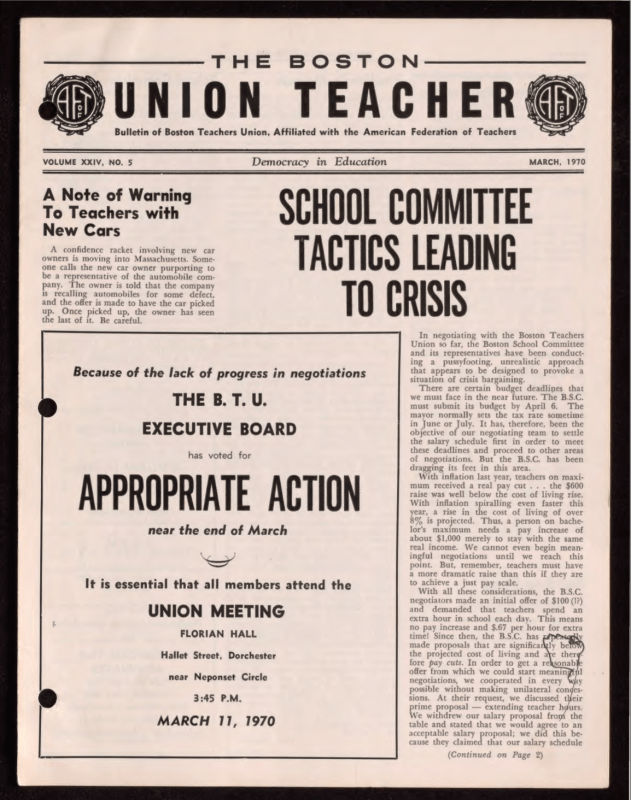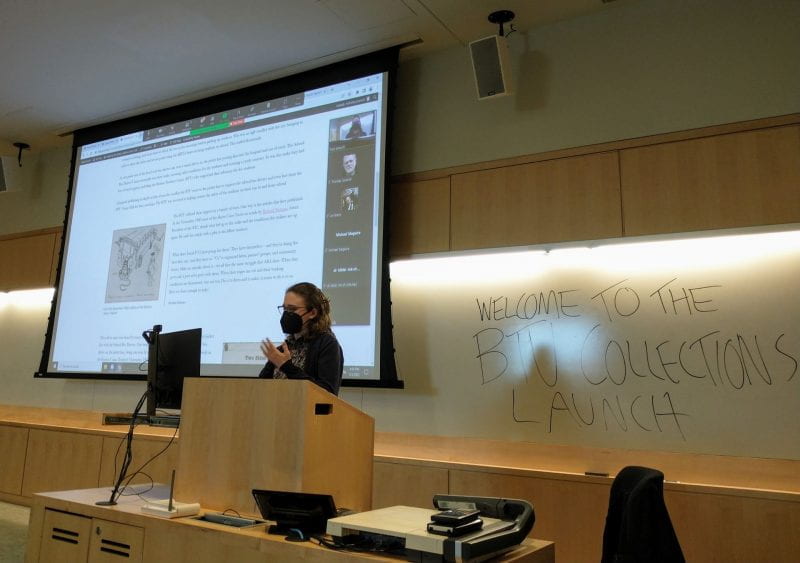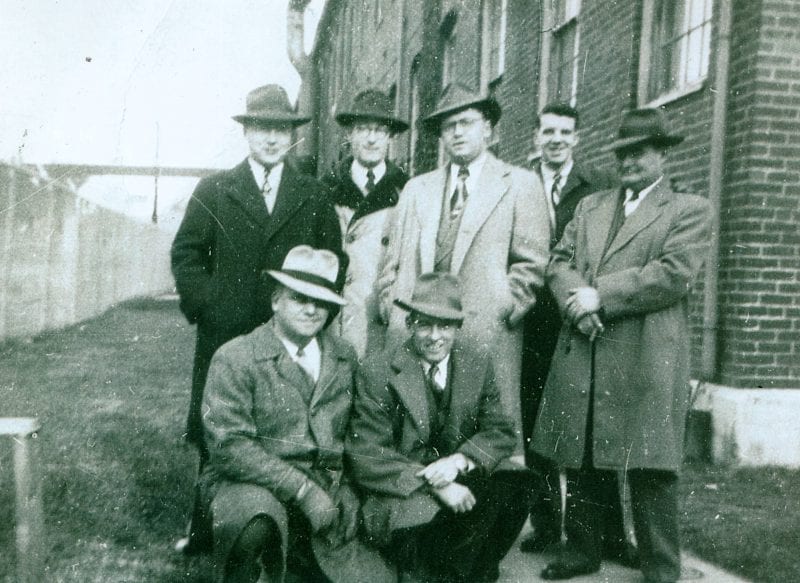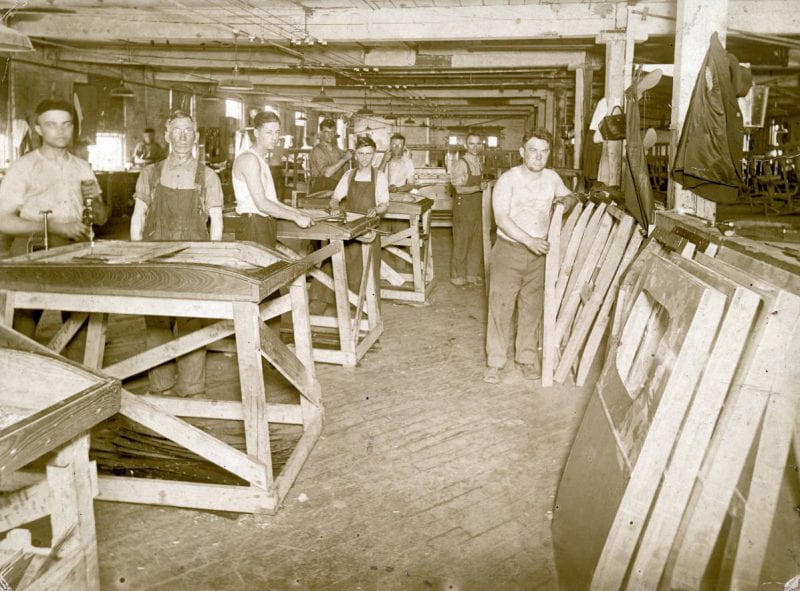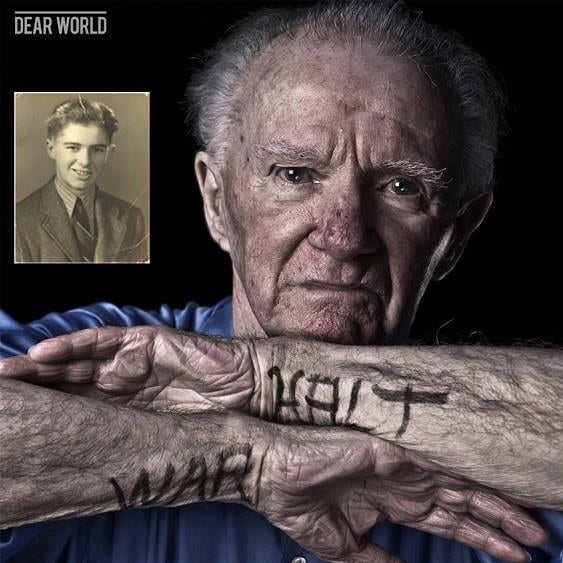
Author: Sabrina Valentino, Archives Assistant and graduate student in the Public History MA Program, UMass Boston
Boston’s Little Syria, an exhibition currently on view in the Grossmann Gallery on the fifth floor of the Healey Library, takes viewers on a journey through Boston’s little-known first Arab neighborhood. Located in what is now Chinatown and the South End, Little Syria became home to immigrants fleeing blight and violence in Ottoman-controlled Syria and Mount Lebanon. The exhibition will be open through May 31, 2024.
The Boston’s Little Syria exhibition uses property maps, photographs, interviews, and memoirs of Syrian and Lebanese Americans who lived in this neighborhood to build a map of the creation and eventual migration of Little Syria, blending the history of the modern Middle East and Boston’s urban history. The items on display not only tell individual stories of the lives of immigrants, but also shed light on a rich cultural center in Boston that has been pushed aside and largely forgotten.
In the 1880s, immigrants from Ottoman-controlled Greater Syria chose to leave their homes to escape war, famine, and the collapse of the silk industry, leading many to build new homes in Massachusetts. Starting in what is now Ping On Alley, the community grew and created a thriving life for themselves, reaching 40,000 people expanding south down Shawmut Avenue by the 1930s. However, despite the community’s growth and success, the residents of Little Syria faced hardships such as being denied citizenship status, and eventually began to relocate due to the Boston Redevelopment Authority uprooting urban blocks.
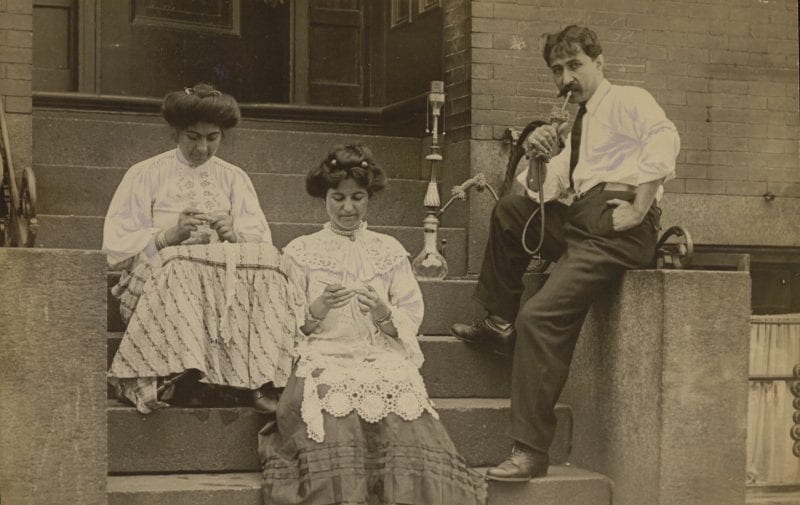
Syrians sitting on a front step on Hudson Street, black and white photograph, photographer unknown, 1909. Courtesy of the Trustees of Boston Public Library.
The exhibition originated from a larger project that began with walking tours in 2022, and eventually grew to include an interactive digital map and a bilingual article published in the online journal Al-Jumhuriya as well as exhibitions at both MIT’s Rotch Library (2022-2023) and the Massachusetts Historical Society (2023).
The exhibition is curated by Lydia Harrington and Chloe Bordewich. Lydia Harrington received her PhD in Art and Architectural History from Boston University in 2022 and was a Postdoctoral Fellow in the Aga Khan Program for Islamic Architecture at MIT in 2022-2023. She is currently the Senior Curator at The Syria Museum, which is one of the sponsors of this exhibition. Chloe Bordewich is a postdoctoral fellow at the Jackman Humanities Institute and Critical Digital Humanities Initiative at the University of Toronto and received her PhD in History and Middle Eastern Studies from Harvard University in 2022.
Boston’s Little Syria is sponsored by the Syrian American Council, the Norman B. Leventhal Map & Education Center at the Boston Public Library, and the University of Massachusetts Boston.
For additional information on Boston’s Little Syria, visit bostonlittlesyria.org.
The Grossmann Gallery is open during Healey Library hours.
University Archives and Special Collections in the Joseph P. Healey Library at UMass Boston collects materials related to the university’s history, as well as materials that reflect the institution’s urban mission and strong support of community service, notably in collections of records of urban planning, social welfare, social action, alternative movements, community organizations, and local history related to neighboring communities.
University Archives and Special Collections welcomes inquiries from individuals, organizations, and businesses interested in donating materials of an archival nature that that fit within our collecting policy. These include manuscripts, documents, organizational archives, collections of photographs, unique publications, and audio and video media. For more information about donating to University Archives and Special Collections, click here or email library.archives@umb.edu.

